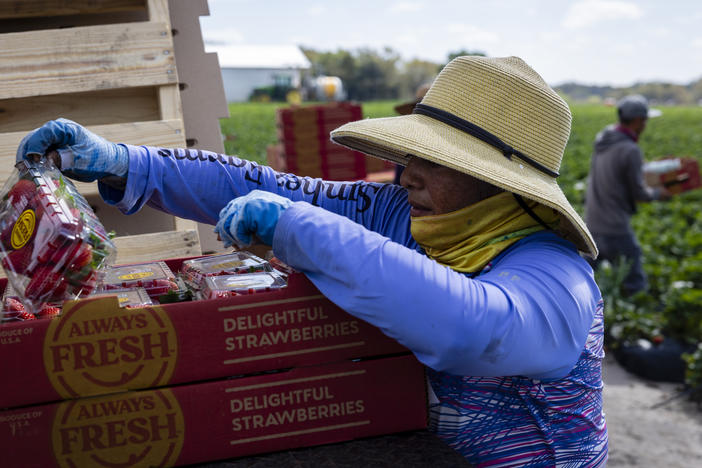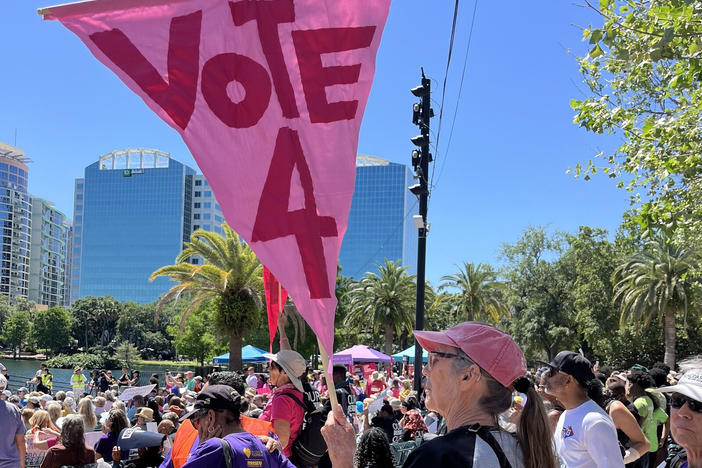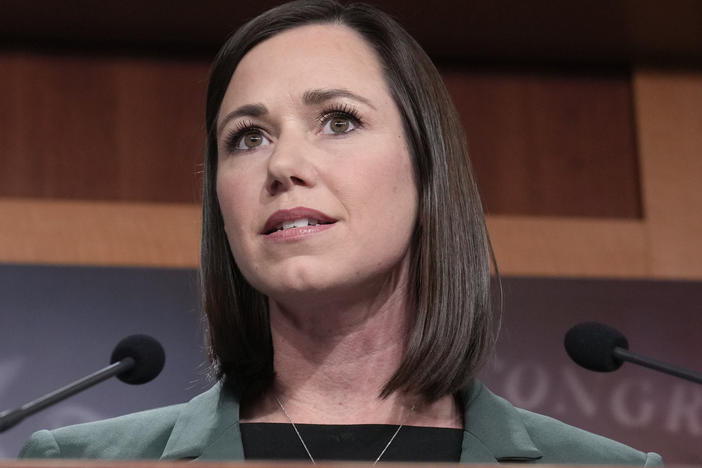Section Branding
Header Content
A proposed Biden drug policy could widen racial disparities, civil rights groups warn
Primary Content
A coalition of civil rights and criminal justice reform groups said a White House proposal for restricting synthetic drugs related to fentanyl will not curb the overdose epidemic.
Transcript
SARAH MCCAMMON, HOST:
Advocates are protesting a Biden administration proposal that would reschedule certain synthetic opioids and potentially stiffen prison sentences. They worry it will exacerbate racial disparities already present in the justice system, as NPR's Carrie Johnson reports.
CARRIE JOHNSON, BYLINE: A coalition of nearly 100 civil rights and criminal justice reform groups is sounding the alarm about the White House plan. The Biden proposal would permanently schedule many drugs chemically related to fentanyl, putting them in the most restricted category and exposing defendants to stiff prison sentences. Sakira Cook follows the issues for the Leadership Conference on Civil and Human Rights. Cook says the Biden approach continues the so-called war on drugs.
SAKIRA COOK: Since the inception of the war on drugs, African Americans and Latino people have borne the brunt of enforcement-first approaches.
JOHNSON: Cook says, in recent years, 70% of defendants charged with fentanyl-related crimes have been people of color, and she says the new Biden plan will worsen those racial disparities in the system. Kara Gotsch is deputy director of The Sentencing Project, a group that aims to reduce long prison sentences.
KARA GOTSCH: It's not drug kingpins. It's not traffickers. It's people on the street who, honestly, once they are taken off the street are replaced the next day.
JOHNSON: The White House didn't want to talk on tape, but in a statement, the Office of National Drug Control Policy says the proposal is part of a bigger effort to respond to the overdose epidemic. The White House and Congress want to act before January 28. That's when the current provisions involving fentanyl-type drugs expire. But the Drug Policy Coalition wants congressional leaders to think twice and consider the country's experience with harsh cocaine laws in the 1980s and '90s. Again, Sakira Cook.
COOK: So this is the issue of the day, but it's a repeat of our past. And we do not want this administration or any other administration to continue to make the same mistakes that we have made in the past. And we want to chart a new path forward.
JOHNSON: The White House says it's doing more, seeking more money for drug treatment and trying to promote research on what works best to curb the epidemic. In the deeply divided Congress, cracking down on opioids and other synthetic drugs is one of the few areas of bipartisan agreement.
Carrie Johnson, NPR News, Washington. Transcript provided by NPR, Copyright NPR.
Bottom Content



